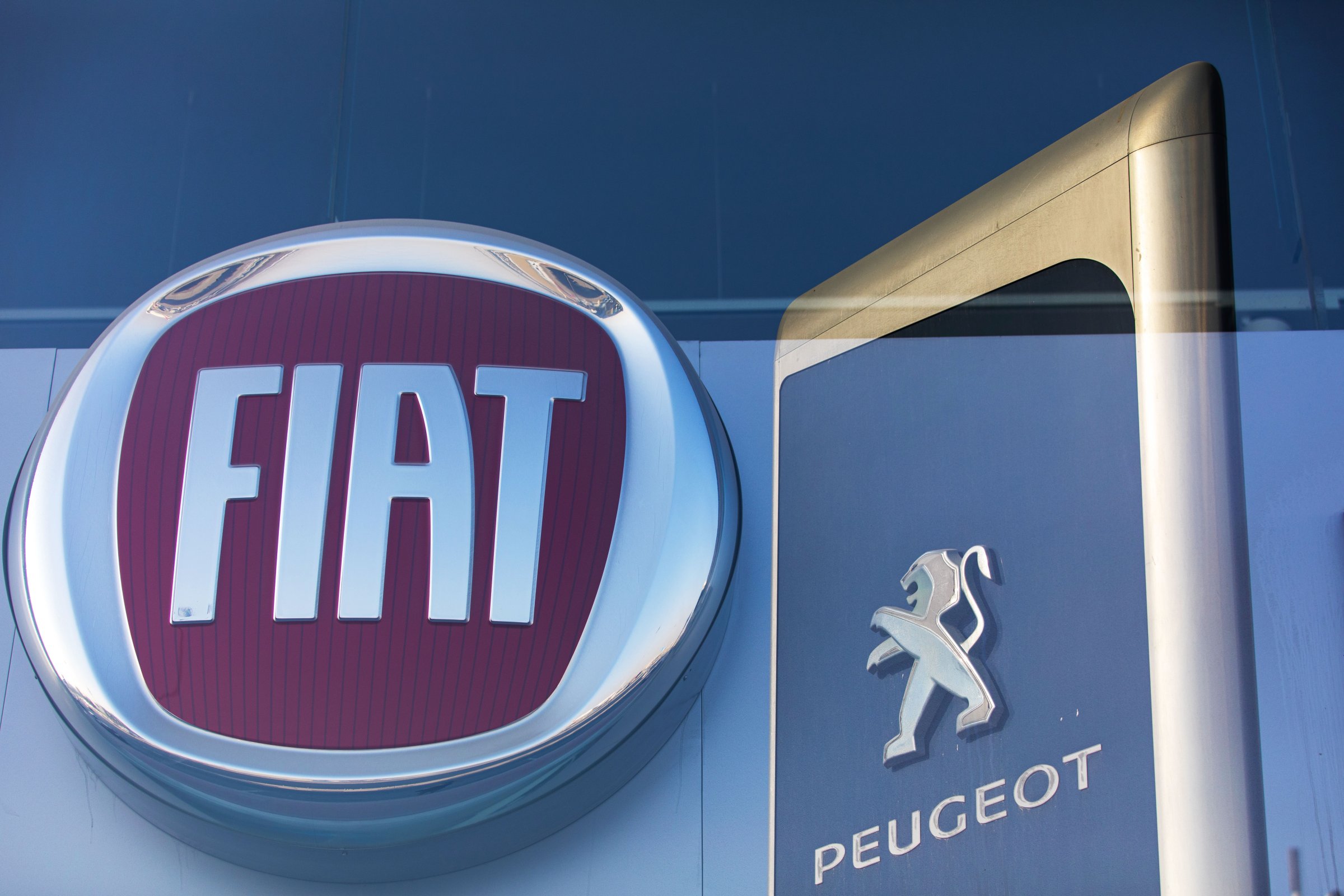
PSA Group and Fiat Chrysler Automobiles agreed to combine in a deal that will create the world’s fourth-biggest auto manufacturer.
The French and Italo-American carmakers signed a binding accord for a 50-50 merger of their businesses, they said in a statement Wednesday. The combined company will be led by PSA Chief Executive Officer Carlos Tavares, with Fiat Chairman John Elkann holding the same role at the enlarged firm.
The merger would forge a regional powerhouse to rival Germany’s Volkswagen AG and have a stock-market value of about $46 billion, surpassing Ford Motor Co. The tie-up also brings together two auto-making dynasties — the billionaire Agnelli clan of Italy, led by Fiat Chairman John Elkann, and the Peugeots of France.
The combination will give Peugeot-maker PSA a long-sought presence in North America and should help Fiat gain ground in developing low-emission technology. Yet it doesn’t fix all of the their shortcomings, Juergen Pieper, an analyst at B. Metzler Seel Sohn & Co. told Bloomberg Television on Tuesday.
The business will still lack “very good premium brands” as well as “a good position in China,” he said.
Like executives across the industry, Tavares and Elkann are responding to growing pressure to pool resources for product development, manufacturing and purchasing in the face of trade wars and an expensive shift toward electric and self-driving technology.
The companies are aiming to extract 3.7 billion euros in annual synergies from the deal, without closing any plants, unchanged from the target they announced when they revealed their merger discussions six weeks ago.
The challenges will be manifold, from improving Fiat’s struggling European operations to meeting tough new rules on emissions that kick in next year in Europe. Tavares, known as a hard-nosed cost-cutter, will also have to navigate the political crosscurrents in France, Italy and the U.S., where the automakers have deep national roots.
Yet he has tackled tough jobs before. Tavares led the French carmaker back from the brink after taking over in 2014, and revived the loss-making Opel brand after acquiring it from GM two years ago.
China’s Dongfeng Motor Corp., which owns 12% of PSA, will see its stake in the combined company decline to 4.5% as a result of the merger and the sale of a portion of its holding to the French carmaker.
Dongfeng’s stake in PSA has attracted attention because of the possibility it could interfere with U.S. regulatory approval for the deal. U.S. economic adviser Larry Kudlow said last month the Trump administration would review the proposed merger because the deal would give the Chinese carmaker a stake in the combined company.
Tavares, on a call with reporters, said the companies don’t expect any significant issues from the antitrust regulators.
More Must-Reads From TIME
- The 100 Most Influential People of 2024
- The Revolution of Yulia Navalnaya
- 6 Compliments That Land Every Time
- What's the Deal With the Bitcoin Halving?
- If You're Dating Right Now , You're Brave: Column
- The AI That Could Heal a Divided Internet
- Fallout Is a Brilliant Model for the Future of Video Game Adaptations
- Want Weekly Recs on What to Watch, Read, and More? Sign Up for Worth Your Time
Contact us at letters@time.com